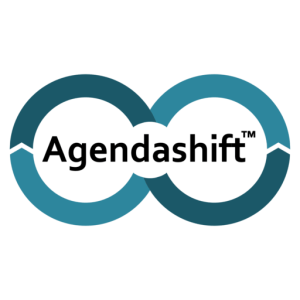Let’s look again at Agendashift in 5 principles, 5 principles for organisational adaptability and 21st century change leadership:
- Start with needs
- Agree on outcomes
- Keep the agenda for change visible
- Manage options, testing assumptions
- Organise for clarity, speed, and mutual accountability
Alongside those principles let’s consider also Agendashift’s description as “inclusive, non-prescriptive, and methodology-neutral”. Taking all of that together, what place is there here for skills and expertise in methods, frameworks, and so on? As it happens, quite a lot. It might seem counter-intuitive, but non-prescriptive is an excellent stance for the serious change agent to take.
Just one of the several cool things about starting with needs and outcomes instead of requirements and (pre-selected) solutions is that you give yourself the opportunity to generate and evaluate options (part of principle 4). That’s an interesting process in itself, and here are some of the ways in which a skilled facilitator can encourage diversity and innovation:
- For every option that involves implementing a tool, we try to think of one that doesn’t (eg to “Implement Slack” we might add the alternative “Get out more”)
- For every option that involves someone outside our circle providing more accurate inputs, we try to think of one where we we take the responsibility for better and timelier conversations (eg to “Better requirements documents” we might add the alternative “Spend time with customers”)
And some questions:
- “What has worked elsewhere?”
- “What would experts from different backgrounds recommend?”
- “What’s the most radical option we could try?”
To people and teams already familiar with a framework (Scrum, for example), it makes total sense to try things that have worked for similar teams, so long as there’s a decent chance that it will help you achieve the outcome you’re currently focused on. For non-trivial problems, it also makes a lot of sense to understand how other people have solved similar problems outside your framework. For all but the most unusual problems, an expert worthy of that title will have ready access to a range of options and will be able to provide insight into when and why some options work better than others under different conditions.
Industry experience and framework expertise come into their own again with principle 5, organising for clarity, speed, and mutual accountability. Many frameworks have their own answers (technical answers, at least) to how communication and decision-making should work, but only a fool would pretend that it won’t be a challenge to change how organisations operate, especially at scale. Without a good understanding of i) what’s possible and ii) how to help make it happen, you’re stuffed.
The majority of Agendashift partners have deep expertise in at least one Lean-Agile method or framework and a working knowledge of others. No less valuable are the remaining partners that come from the organisation, facilitation, and change side as employees or external consultants, who are used to working respectfully with the technical experts (and vice versa).
If this inclusive (“it’s all great”), non-prescriptive, methodology-neutral thing sounds attractive to you, give Agendashift a closer look. Check out our partner directory, either to find some local expertise or to help you decide that you’d belong there yourself. If you’re a practitioner, check out the partner programme. If a potential sponsor, the unbenchmarking service and the transformation mapping workshop will give you a flavour of the services we and our partners can offer. And for depth, there’s the book: Agendashift: clean conversations, coherent collaboration, continuous transformation.

Blog: Monthly roundups | Classic posts
Links: Home | Partner programme | Resources | Contact | Mike
Community: Slack | LinkedIn group | Twitter

One thought on “(Non-)Prescription, frameworks, and expertise”